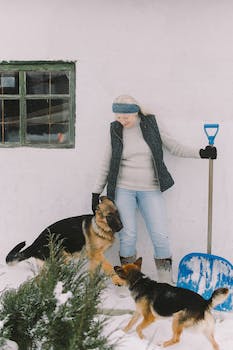As a pet owner, one of the most rewarding experiences is watching our furry friends grow old with us. However, just like humans, senior pets require special care and attention to ensure they live their golden years to the fullest. In this blog post, I will discuss some common age-related health concerns that senior pets may face, as well as some solutions to help them age gracefully and comfortably.
Joint Problems
One of the most common health issues that senior pets face is joint problems. Just like us, their joints can become stiff and achy with age, making it difficult for them to move around comfortably. To address this issue, it is essential to provide them with a comfortable and supportive bed. Opt for orthopedic beds that provide extra cushioning and support for their joints. Additionally, regular exercise is crucial to keep their joints mobile. However, it is essential to choose low-impact exercises such as gentle walks or swimming to avoid further joint damage.
Dental Care

Another significant concern for senior pets is dental health. Over time, their teeth can become decayed, leading to pain, difficulty eating, and even infections. To prevent dental issues, it is essential to maintain regular dental hygiene for your pet. Brush their teeth regularly using a toothbrush and toothpaste designed specifically for pets. Additionally, provide them with dental chews or toys that can help clean their teeth. Regular dental check-ups and professional cleanings may also be necessary to ensure their oral health is in top shape.
Weight Management
Weight management becomes increasingly important as pets age. Obesity can lead to a variety of health issues, including joint problems, heart disease, and diabetes. Therefore, it is essential to monitor your pet’s weight and adjust their diet accordingly. Consult with your veterinarian to determine the appropriate calorie intake for your senior pet based on their breed, weight, and activity level. Additionally, regular exercise is crucial for maintaining a healthy weight. However, it is important to be mindful of their limitations and choose activities that are suitable for their age and physical condition.
Regular Veterinary Check-ups
Regular veterinary check-ups are vital for senior pets. As they age, they become more susceptible to various health issues, including arthritis, kidney disease, and cancer. Early detection is key to managing these conditions effectively. Therefore, it is important to schedule regular check-ups with your veterinarian. During these visits, your vet may perform blood tests, X-rays, or other diagnostic procedures to assess your pet’s overall health. They can also provide advice on nutrition, exercise, and any specific concerns related to your pet’s age.
Emotional Support
Lastly, it is important to remember that senior pets may require additional emotional support as they age. Many older pets may experience anxiety or cognitive decline, leading to behavioral changes. Spend quality time with your pet, providing them with love, attention, and mental stimulation. Engage in activities that they enjoy, such as gentle playtime or grooming sessions. Additionally, consider providing them with a comfortable and quiet space where they can retreat and relax when needed.
In conclusion, caring for senior pets involves addressing their age-related health concerns and providing them with the love and attention they deserve. By being proactive and attentive to their needs, we can ensure that our furry companions enjoy their golden years to the fullest.